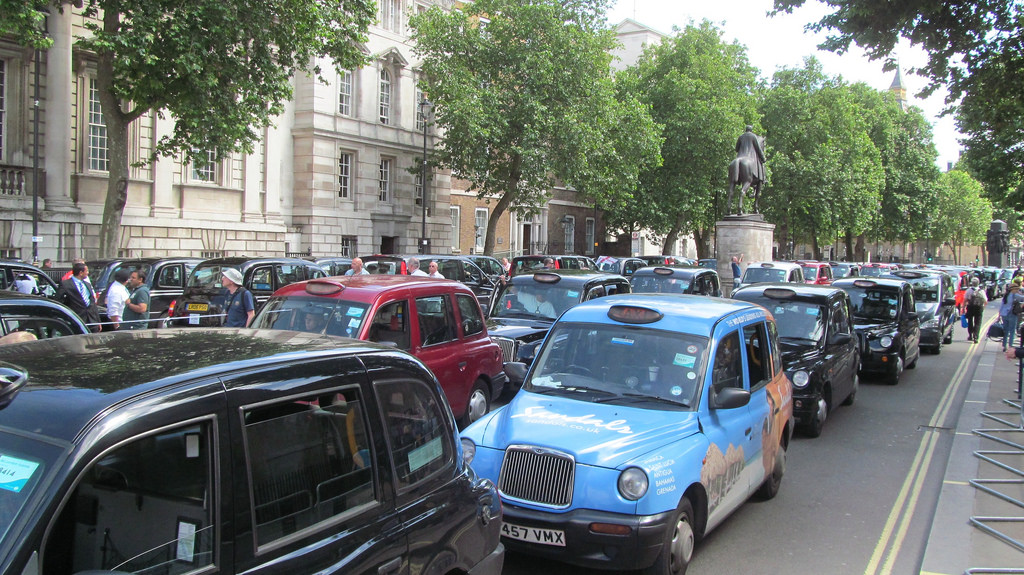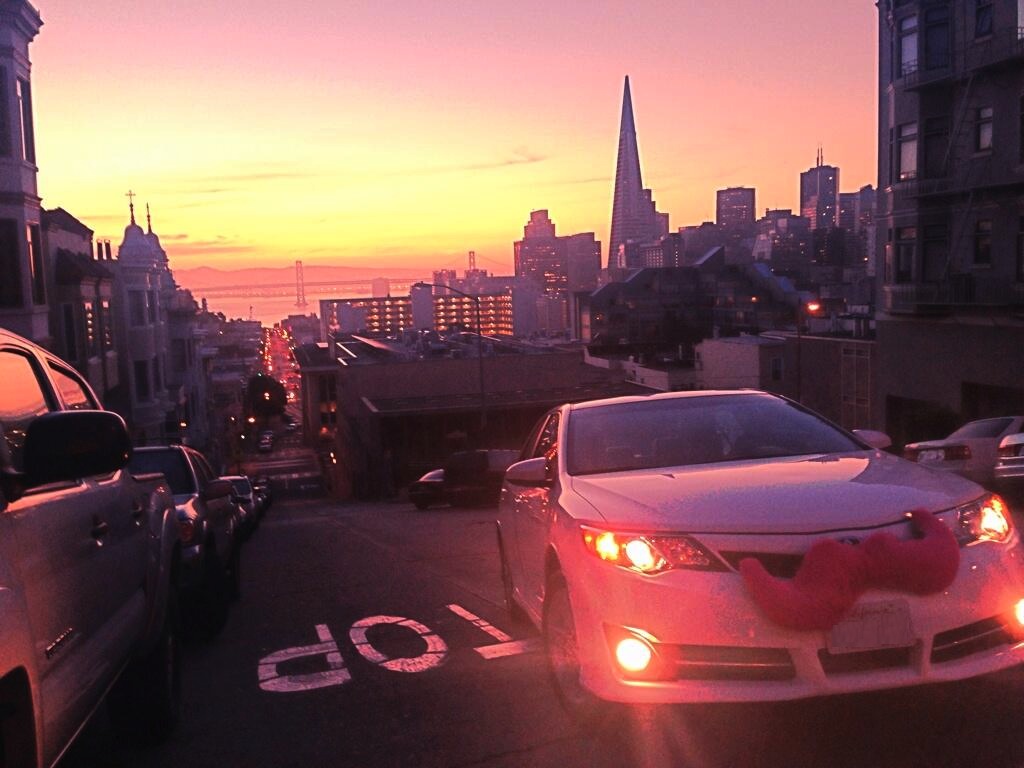Europe’s leading clean-transportation group has allied with other organizations on the Continent plus the Sierra Club in the U.S. to get the word out that in the largest, most congested cities, ride-hailing services are adding to issues with pollution and congestion—not easing them.
An analysis released last week by the European group Transport & Environment has found that Uber is worsening emissions in London, Paris, and other cities that have already faced issues with congestion.
According to T&E, Uber drivers accounted for about half of the total private-hire vehicle licenses in London in 2018. Uber stands as one of the biggest taxi services in Europe, the group says, with 3.6 million users in London and 2.7 million users in France.
Since Uber arrived in London, private-hire trips have increased by about 25% in London, correlating to a 23% increase in overall CO2 emissions in the UK.

London anti-Uber taxi protest: June 11, 2014 (photo by Flickr user David Holt)
The analysis estimates that annual Uber operations alone in the urban areas of London, Paris, and Brussels add as much CO2 emissions as a quarter of a million cars—to the point, a greater number of cars added than pollution reduced.
French data notes that 90 percent of the private-hire vehicles, including Uber, are diesel, and likely adding to air pollution issues.
Transport & Environment says that Uber should stop using gas and diesel vehicles.
“If Uber continues its current business practice of adding more combustion engine cars and fossil-powered kilometres in our cities, it is an obstacle to the transition to green and sustainable cities in Europe,” it says in the analysis. “But Uber could also “do the right thing” as it promised in its IPO and choose to become part of the solution.”
The group points to results for New York, Boston, Chicago, and San Francisco, where analyses have found similar conclusions.

Lyft car with trademark pink mustache (via Wikimedia)
The company Lyft is offering electric vehicles like the Kia Niro EV for rent to its drivers, as a way of greening the fleet.
An Uber spokesperson issued the following statement to Green Car Reports: “We are committed to helping people and cities move away from transportation overly reliant on car ownership towards a shared, electric future. To do so, we are actively working with cities across Europe to improve access to clean, safe and affordable modes of transportation."
Uber does have programs to integrate public transit and e-bikes with ride-sharing and ride-hailing, and claims that four in ten Uber trips in London and three out of ten in Paris start or end within 200 meters of a train station or metro stop.
Uber aims to go electric in large cities in Europe by 2025, and it announced last year that it will bank a surcharge for ride-hailing passengers in London toward going electric in that city by the end of 2021. It’s also tried a program in the U.S. in which it pays those who drive an electric vehicle an extra $1 per ride up to $20 a week.
